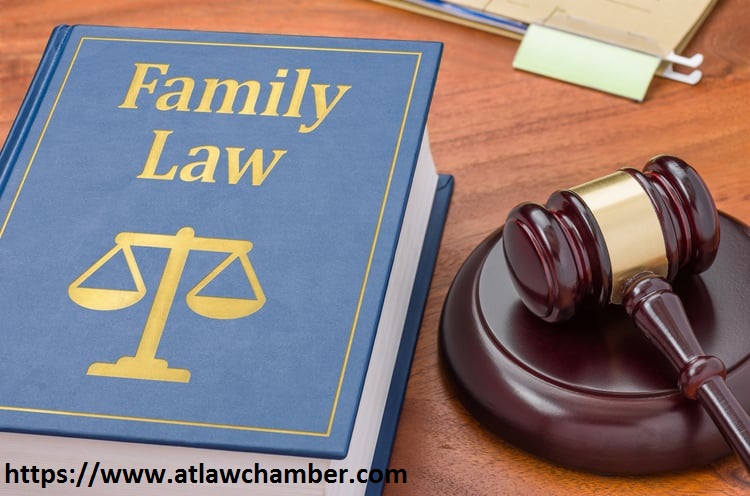Best Family Court Lawyers in Lucknow
The Best Advocates in Lucknow High Court helps people in Lucknow to solve their family matters according to the law of the Indian judiciary system. The people of India belong to different religions and faiths. They are governed by different sets of personal laws in respect of matters relating to family affairs, i.e., marriage, divorce, succession.
Personal Law
The people of India belong to different religions and faiths. They are governed by different sets of personal laws in respect of matters relating to family affairs, i.e., marriage, divorce, succession, etc. Best Family Court Lawyers in Lucknow are always engaged to provide you justice in your family matters.

Marriage
Law relating to marriage and/or divorce has been codified in different enactments applicable to people of different religions. These are:
- The Converts' Marriage Dissolution Act, 1866
- The Indian Divorce Act, 1869
- The Indian Christian Marriage Act, 1872
- The Kazis Act, 1880
- The Anand Marriage Act, 1909
- The Indian Succession Act, 1925
- The Child Marriage Restraint Act, 1929
- The Parsi Marriage and Divorce Act, 1936
- The Dissolution of Muslim Marriage Act, 1939
- The Special Marriage Act, 1954
- The Hindu Marriage Act, 1955
- The Foreign Marriage Act, 1969 and
- The Muslim Women (Protection of Rights on Divorce) Act, 1986.
The Special Marriage Act, 1954 extends to the whole of India except the State of Jammu and Kashmir but also applies to the citizens of India domiciled in Jammu and Kashmir. Persons governed by this Act can specifically register the marriage under the said Act even though they are of different religious faiths. The Act also provides that the marriage celebrated under any other form can also be registered under the Special Marriage Act if it satisfies the requirements of the Act. Section 4(b) (iii) of the Act was amended to omit the words "or epilepsy.'' Sections 36 and 38 have been amended to provide that an application for alimony pendente lite or the maintenance and education of minor children be disposed of within 60 days from the date of service of notice on the respondent.
An attempt has been made to codify customary law which is prevalent among Hindus by enacting the Hindu Marriage Act, 1955. The Hindu Marriage Act, 1955, which extends to the whole of India, except the State of Jammu and Kashmir, applies also to Hindus domiciled in territories to which the Act extends and those who are outside the said territories. It applies to Hindus (in any of its forms or development) and also to Buddhists, Sikhs, Jains and also those who are not Muslims, Christians, Parsis or Jews by religion. According to Best Family Court Lawyers in Lucknow, the Act does not apply to members of any scheduled tribes unless the Central Government by notification in the official Gazette otherwise directs.
Provisions in regard to divorce are contained in section 13 of the Hindu Marriage Act and section 27 of the Special Marriage Act. Common ground on which divorce can be sought by a husband or a wife under these Acts fall under these broadheads: Adultery, desertion, cruelty, unsoundness of mind, venereal disease, leprosy, mutual consent and is not heard of as alive for seven years.
According to Best Family Court Lawyers in Lucknow, the Christian community, provisions relating to marriage and divorce are contained in the Indian Christian Marriage Act, 1872, and in section 10 of the Indian Divorce Act, 1869 respectively. Under that section the husband can seek divorce on grounds of adultery on the part of his wife and the wife can seek divorce on the ground that the husband has converted to another religion and has gone through marriage with another woman or has been guilty of:
* Incestuous adultery
* Bigamy with adultery
* Marriage with another woman with adultery
* rape, sodomy or bestiality
* Adultery coupled with such cruelty as without adultery would have entitled her to a divorce, a mensa etoro (a system of divorce created by the Roman Catholic Church equivalent to judicial separation on grounds of adultery, perverse practices, cruelty, heresy, and apostasy) and
* Adultery coupled with desertion without reasonable excuse for two years or more.
In the Indian Divorce Act, 1869 comprehensive Amendments were made through the Indian Divorce (Amendment) Act, 2001 (No. 51 of 2001) to remove discriminatory provisions against women in the matter of Divorce. Best Family Court Lawyers in Lucknow knows all the laws about family issues. Further, sections 36 and 41 of the Act were amended by the Marriage Laws (Amendment) Act, 2001 to provide that an application for alimony pendente lite or the maintenance and education of minor children be disposed of within 60 days from the date of service of notice on the respondent.
As regards Muslims, marriages are governed by the Mohammedan Law prevalent in the country. As regards divorce, i.e., Talaq, a Muslim wife has a much-restricted right to dissolve her marriage. Unwritten and traditional law tried to ameliorate her position by permitting her to see dissolution under the following forms:

Talaq-I-Tafwid: This is a form of delegated divorce. According to this, the husband delegates his right to divorce in a marriage contract which may stipulate, inter alia, on his taking another wife, the first wife has a right to divorce him
Khula: this is a dissolution of agreement between the parties to marriage on the wife's giving some consideration to the husband for her release from marriage ties. Terms are a matter of bargain and usually take the form of the wife giving up her Mehr or a portion of it, and
Mubarak: this is divorce by mutual consent.
If you have any family issues and want to solve those you can choose Best Family Court Lawyers in Lucknow. They are best in their work and helps you at every step according to the Indian Constitution.